Hospitality learning management system
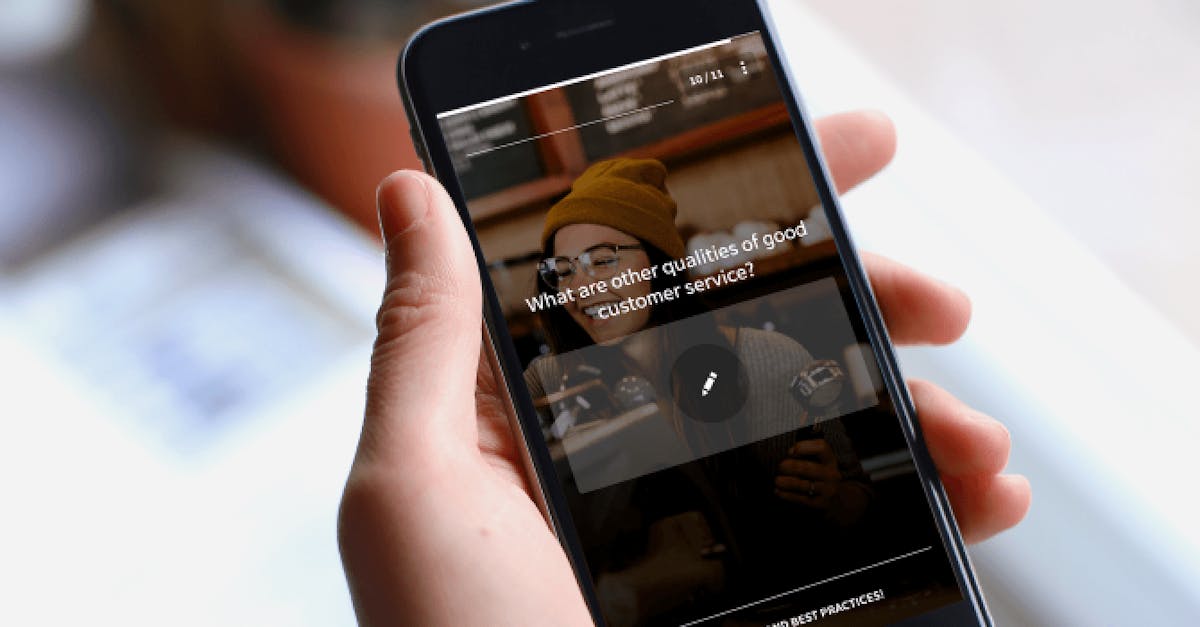
The exact origin of microlearning is a difficult one to pinpoint because the term wasn’t coined until the 1960s but there is no question surrounding its engagement and effectiveness for modern eLearning. Before diving into the benefits and use cases for microlearning, let’s peel back the concept to understand the basics.
Simply put, microlearning is the breakdown of information into small, digestible chunks of information. Delivering information in these small increments allows the human brain to easily absorb the content and has proven results of higher engagement and retention from learners across the board. In this article, we will explore the merit around microlearning and its applicability to the hospitality industry.
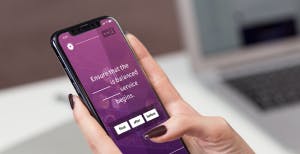
Principles of microlearning
Since the term first appeared in Hector Correa’s “The Economics of Human Resources” in 1963, microlearning has been steadily growing in popularity. It wasn’t until the 2000s though, that it really took off thanks to smartphones and learning apps. What’s perhaps been the biggest push towards microlearning, however, is the cognitive behaviours and evolving expectations that came with the use of smartphones.
Since iPhones and Androids have given us access to unlimited information literally at our fingertips, we as consumers have been conditioned to expect instant gratification. We have collectively adapted to the constant over-stimulation of ads, headlines, and everything in between. Because of this perpetual influx, we know that smartphone users are easily distracted and are proven to have significantly shorter attention spans. In fact, Microsoft reported that the average human being now has an attention span of eight seconds; a dramatic decrease from the year 2000 where 12 seconds was the norm.
With these kinds of statistics, it’s no surprise that microlearning has risen to become the most effective form of learning since microlessons usually take no more than five to ten minutes. The quick nature of mobile-first microlearning keeps learners engaged, especially when elements like graphics, videos, rewards, or game-like elements are incorporated into a microlesson. Because the age of the smartphone has evolved the way that we consume, it’s also revolutionized the way we learn.
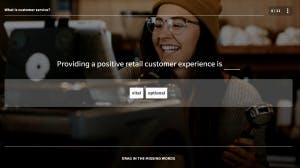
Hospitality training
Since the hospitality industry is notoriously fast-paced with high turnover rates and varying schedules, onboarding, training, and upskilling staff has always been a challenge. It’s common that time-poor managers can’t afford to provide constant, quality training to their employees because they simply cannot keep up.
So how do you train your staff without compromising important content, losing brand identity, and without taking up the time that neither managers nor employees have to spare? Mobile-first microlearning is the answer.
Mobile-first
If a Learning Management System (LMS) like EdApp is mobile-first, this means that it was created for learners that have busy schedules. Mobile-focused systems mean that employees can perform training on their own mobile devices. Not only is this more convenient for dispersed or busy cohorts, but it’s also the most effective and engaging way to learn.
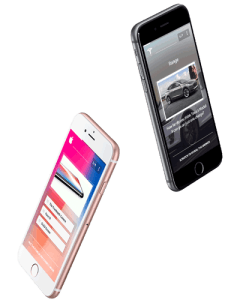
We always have our smartphones on us, so incorporating vital training content that can be accessed from our mobile devices makes sense. This is one of the reasons why hospitality training and microlearning go hand-in-hand.
Microlearning
Along with being mobile-first, EdApp is designed around microlearning. Having training content broken down into easily digestible modules means that training is not only effective but also incredibly convenient and flexible.
Training your hospitality teams makes sense because employees can complete training whenever they have a few minutes to spare, in between shifts or on a commute. From a manager’s perspective, essential onboarding, training, and health, and food hygiene training can be easily completed by every single employee and easily tracked and measured. What’s more, if any team member hasn’t completed any content, EdApp has tools like custom push notifications, giving employees an alert to complete new training or a gentle reminder to finish up content they haven’t completed yet.
Rapid authoring tool
EdApp’s powerful authoring tool is based upon using immersive, fully-interactive experiences to engage learners. Gamification is built-in too, meaning that even the most distracted learner’s attention is kept as they complete interactive and varying microlessons that incorporate intuitive games to reinforce the training material.
Having an authoring tool that’s easy to use is a must for hospitality operators. EdApp’s agile authoring tool means completely bespoke courseware can be created and deployed to hospitality teams in real-time. Furthermore, EdApp’s rapid authoring tool doesn’t deal with coding or complexity.
Curious to take an EdApp microlesson for yourself? Discover over a hundred courses in the editable course library full of completely free content for anyone to take. Complete “lesson here or copy and paste the following URL in your browser: https://www.edapp.com/course/teamwork-in-the-hospitality-industry
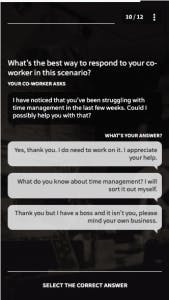
Author
